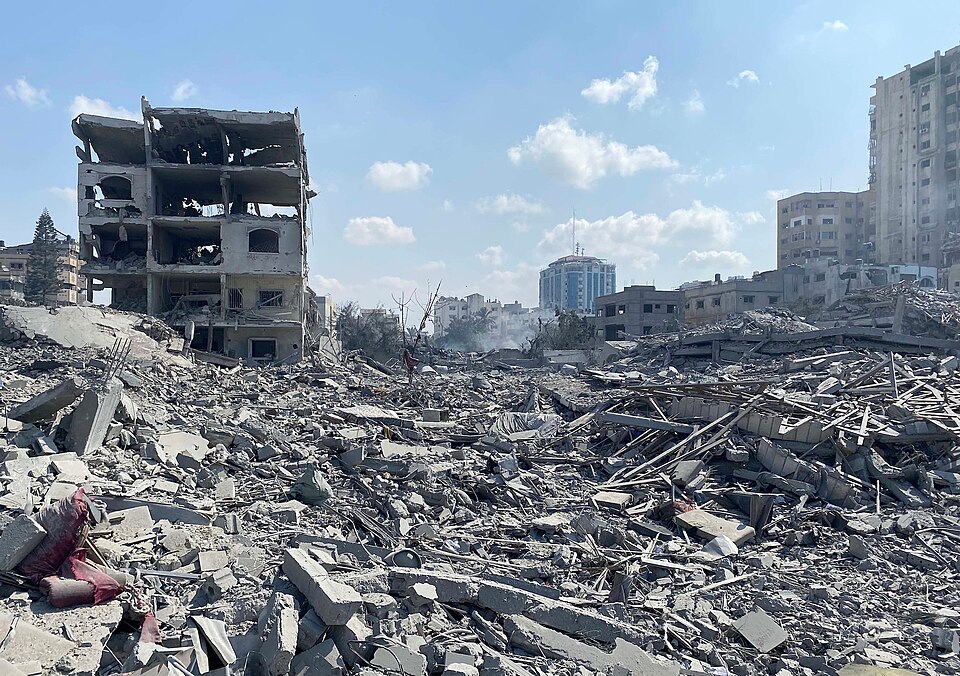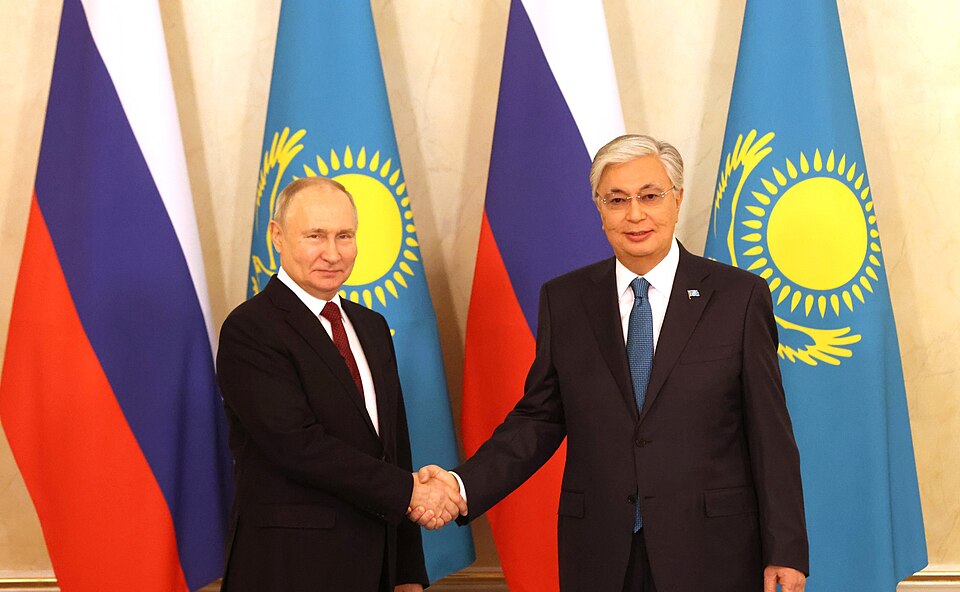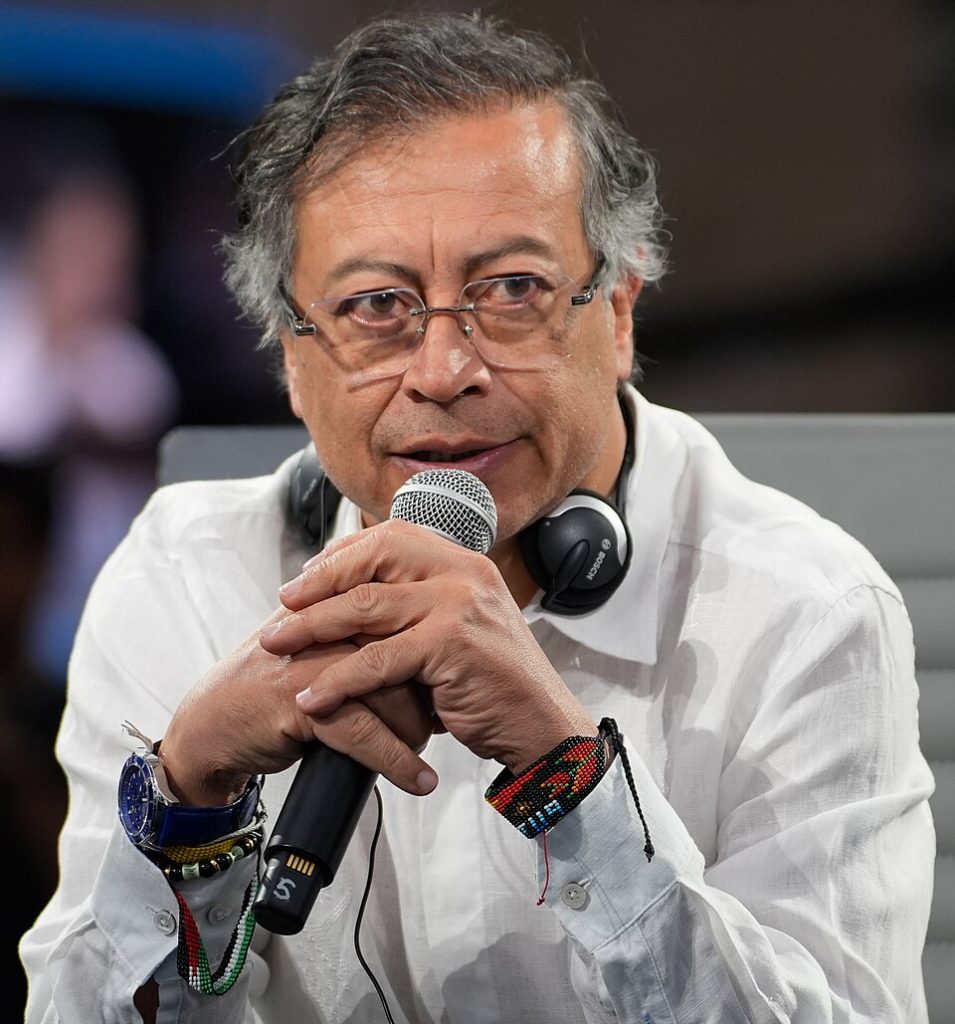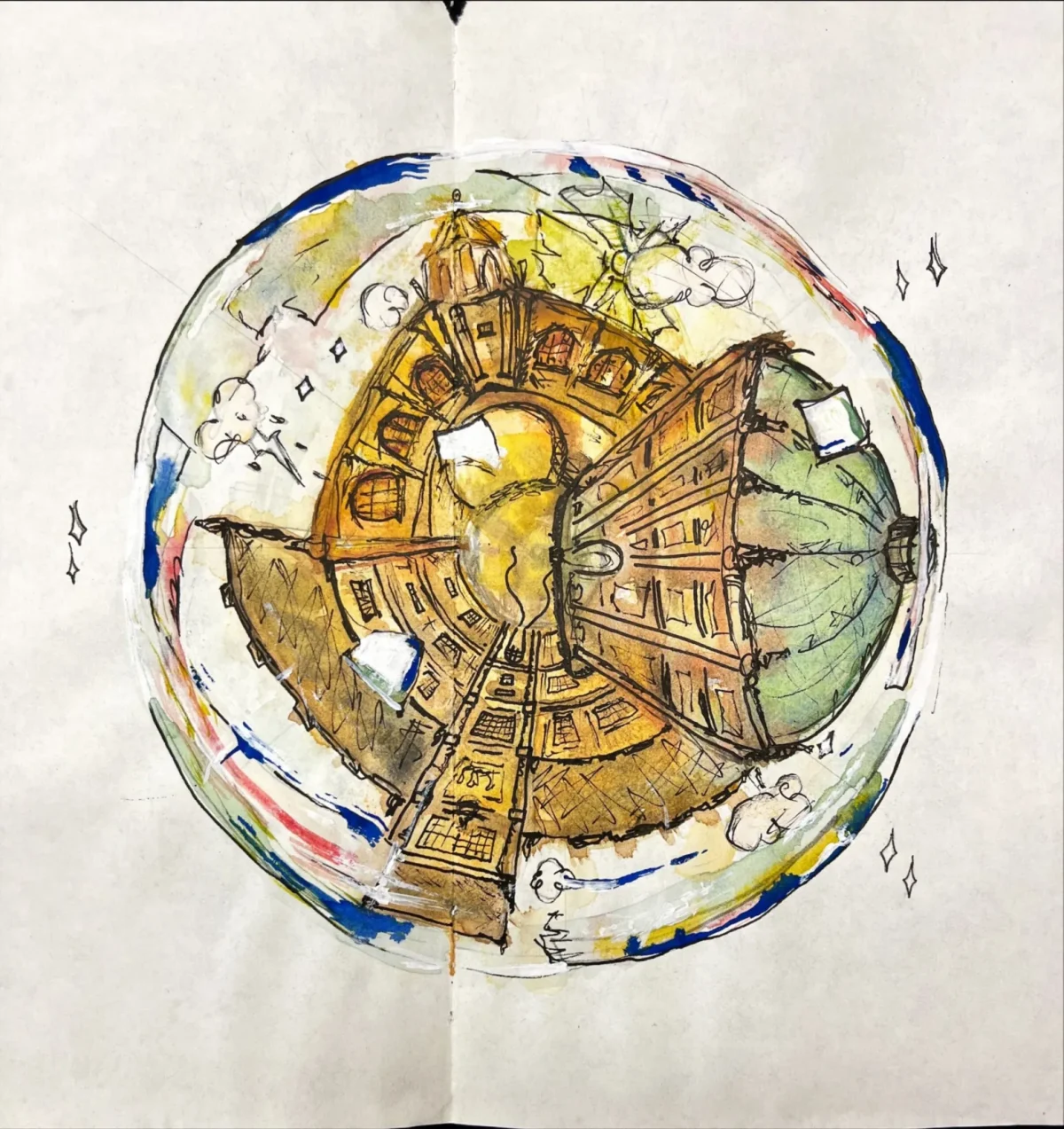The Editor’s Note
Welcome to this edition of Outside OX1, I hope that you are all well. This has been a crazy week at home and abroad with movement in Westminster, Congress and beyond. Chances are that you probably missed some of the stories that dropped this week, so why not catch up over that cup of coffee?
Saba Ahmadzadeh Noughani turns to the Middle East. One month into a fragile ceasefire, Gaza’s humanitarian crisis has sharply worsened due to severe restrictions on aid, ongoing violence, and shortages of essential supplies. Humanitarian organisations, including MSF and WHO, describe the situation as catastrophic, and the UN’s IPC confirmed that famine conditions were reached in August. Although the ceasefire agreement requires 600 aid trucks daily, aid agencies report that far fewer actually reach their destinations, and much of the cargo consists of commercial goods rather than critical humanitarian supplies.
Finlay Jones reports that Kazakhstan’s lower house (the Mäjilis) unanimously approved a bill banning the distribution of “LGBT propaganda” online and in the media, with penalties ranging from fines to up to ten days’ imprisonment for repeat violations. Human Rights Watch warns the bill would violate Kazakhstan’s international human rights commitments. The bill now awaits approval from the Senate and the signature of President Tokayev, who has previously criticised “LGBT” and “democratic moral values,” suggesting a veto is unlikely.
Gabriela Austin uncovers that Colombian President Gustavo Petro has ordered all Colombian public-security forces to halt communication and cooperation with U.S. security agencies until the United States ends its recent missile strikes on vessels in the Caribbean. These strikes, authorised by the Trump administration in September as part of anti-drug operations, have targeted Venezuelan boats suspected of drug-trafficking and killed at least 76 people in 19 attacks, without the U.S. providing concrete evidence of criminal activity.
The Ceasefire Paradox: Despite Truce, Famine Grips Gaza
Saba Ahmadzadeh Noughani

One month into a fragile ceasefire, the humanitarian crisis in Gaza has worsened due to persistent aid blockades, ongoing violence, and severe restrictions on essential supplies, according to the UN.
Furthermore, many humanitarian organisations, including Doctors Without Borders (MSF), have reported major obstacles in bringing vital aid into Gaza. Bahaa Zaqout, director of external relations at the Palestinian NGO PARC, and the chief of the WHO described the conditions as “catastrophic”.
In August, the UN-backed Integrated Food Security Phase Classification (IPC) officially confirmed that famine conditions had been reached in Gaza. However, the October 2025 ceasefire agreement stipulated that 600 aid trucks must enter Gaza daily.
Israel claims that hundreds of trucks are entering daily. However, aid workers from organisations like the UN, UNRWA, and Humanitarian Outcomes continue to report that the amount is not only insufficient to meet minimum needs, but that aid often consists of commercial goods rather than critical humanitarian supplies. Furthermore, aAid agencies report that due to Israeli restrictions and ongoing hostilities, the actual number of trucks reaching their destinations is usually less than even a quarter of the agreed amount. Consequently, Gaza’s population, which is disproportionately children, continues to face high levels of food insecurity.
What does the blockade ban?
Israel has banned certain essential items. These include, but are not limited to, baby formula, some medicines, medical equipment, shelter materials, spare parts needed for water systems, as well as construction materials needed for repairs and for clearing the rubble. Reports from Doctors Without Borders account that when these items are found in aid packages, Israeli security checks have confiscated them, subsequently stepping in the way of delivering essential items.
Israel has justified the humanitarian aid blockades by stating that there has been a ‘lack of cooperation from Hamas’ in returning the bodies of the deceased hostages. Hamas has stated that it is facing obstacles in retrieving the bodies due to a lack of equipment to clear the rubble.
Rescue teams had requested that Israel allow the entry of excavators and heavy machinery to clear debris to find bodies and rebuild infrastructure, but that Israel has thus far ignored their request. The Red Cross has emphasised that the retrieval of the bodies of deceased hostages is a “massive challenge” given the difficulties of finding bodies in Gaza’s rubble, predicting that it could take weeks.
Therefore, currently, roads remain blocked due to piles of rubble and the thousands of bodies still trapped under them, making it difficult to retrieve the bodies of deceased hostages and also causing operational challenges in delivering aid.
Aid access has further been restricted to only two crossings, limiting the quantity that can enter. These are the Kerem Shalom and Zikim crossing.
The Humanitarian Impact on Gaza’s Population
As winter approaches, the living conditions in Gaza have worsened. People are displaced and living in overcrowded tents. As they rely on limited aid, many have been forced to resort to eating animal feed and weeds to survive.
The lack of humanitarian aid, medical care, water and sanitation has increased the spread of disease. There has been a rise in respiratory, skin, and gastrointestinal infections resulting from the overcrowded and dire conditions in displacement sites. Malnutrition rates among children have also skyrocketed.
The few health facilities that remain are unable to keep up. Fuel shortages, lack of medical equipment and medication are all being barred from entering Gaza and confiscated at the border, making it impossible for doctors to provide adequate treatment to their patients.
Responses from The UN and Humanitarian Organisations
UNICEF, UNRWA, WHO and the UN have repeatedly emphasised that full and unimpeded access for aid is critically needed in Gaza. Other NGOs such as Oxfam, Save the Children, and the International Rescue Committee (IRC) have also emphasised the severity of the situation.
Since last month’s ceasefire, Israeli attacks have killed at least 242 Palestinians, including 85 children. As new reports of civilian deaths emerge daily, this figure is continuing to increase.
This is not the only ceasefire that Israel has violated. Recently, the UN human rights office announced that Israel’s violation of the November 2024 ceasefire with Lebanon resulted in the deaths of 114 civilians.
The UN and other humanitarian bodies have repeatedly urged Israel, as the occupying power in the Gaza strip, to comply with the terms of the ceasefire, international law and International Court of Justice rulings which include increasing the humanitarian aid access to Gaza’s population.
Kazakhstan follows in Russia’s footsteps with new anti-LGBTQ+ Propaganda Law
Finlay Jones

On 12 November, the Mäjilis (lower house) of Kazakhstan approved a bill which forbids the distribution of “LGBT propaganda” online or in the media. The punishments for breaking this new law range from fines to up to ten days imprisonment for repeat offenders.
The bill was passed unanimously, despite Kazakhstan’s human rights commitments. Human Rights Watch has raised concerns that it “would blatantly violate” these commitments, if the bill is successfully voted on in the Senate.
If the Parliament passes the bill through the Senate, the Kazakh President Kassym-Jomart Tokayev must sign it to pass the bill into law. Earlier this year, he made comments online criticising the imposition of LGBT and other “so-called democratic moral values” onto his country, making a presidential veto unlikely.
The bill specifically targets “non-traditional sexual orientation”, a term which is almost identical to that used in Russia’s original 2013 law. The Kazakh law also links LGBTQ+ rights to paedophilia, thus mirroring the common anti-LGBTQ+ stereotypes still used across the world.
According to LGBTQ+ activists who spoke at a consultation on the legislation, the lawmakers often conflated LGBTQ+ relationships with bestiality and child abuse. This is perhaps unsurprising given that before the vote, the Education Minister, Gani Beisembayev, warned that: “Children and teenagers are exposed to information online every day that can negatively impact their ideas about family, morality, and the future.”
However, the bill does not specifically mention this concern for children, but instead punishes attempts to ‘convince an unspecified group’, which in theory could include all members of the population, of the acceptability of LGBTQ+ relationships. This, therefore, reveals a much broader attack on LGBTQ+ rights within the country, as it is not simply restricted to ideas around protecting children.
For LGBTQ+ Kazakhs, this bill will worsen an already difficult situation. Although legal since 1998, homosexuality was viewed as unjustifiable by 70% of the population in 2022. For instance, when a lesbian couple celebrated their love by holding a wedding in 2013, the response online was overwhelmingly negative. This bill is, in part, a consequence of public opposition to LGBTQ+ rights. Last year, a petition by the Parents’ Union gathered 50,000 signatures in support of banning “overt and indirect forms of LGBT propaganda”.
Up until this week, Kazakhstan remained a sort of haven for LGBTQ+ rights in a region where multiple countries still criminalise (male) homosexuality. The worsening situation in Kazakhstan reflects a trend across Central Asia, as well as in former and current Communist states.
Last year, Bulgaria and Georgia signed similar anti-LGBTQ+ propaganda laws. Similarly, Hungary banned public LGBTQ+ gatherings in April, whilst Slovakia restricted adoption to married heterosexual couples. Closer to Kazakhstan, the Kyrgyz President Sadyr Japarov expressed his intention to reintroduce the death penalty for sex crimes against children, which some fear could be used to target queer people as well.
Furthermore, the day before the Kazakh bill passed in the Mäjilis, the Chinese authorities removed two of the main gay dating apps available in the country. In a year that began with hope for LGBTQ+ rights following Thailand’s landmark recognition of same-sex marriage, as the end of the year nears, the legacy of 2025 for LGBTQ+ rights appears significantly less positive.
‘Defence’ to ‘War’: Colombia cuts ties with the US
Gabriela Austin

In a sharp turn in US–Colombia relations, Colombian President Gustavo Petro announced on Tuesday that his government is ordering all public-security forces to suspend communications and other dealings with U.S. security agencies until Washington ceases missile strikes on vessels in the Caribbean Sea.
The decision follows a string of operations authorised by the Trump administration in September in which U.S. forces targeted Venezuelan boats alleged to be involved in drug-trafficking, killing at least 76 people in nineteen strikes thus far, in the Caribbean and eastern Pacific. The US has not presented concrete evidence of the unlawful transportation of these drugs by the boats..
Indeed, on 9 November, Petro met with the family of a Colombian fisherman allegedly killed in one of the strikes, and later, at a summit hosted by Colombia between Latin American and European Union leaders, he stated how the fisherman “may have been carrying fish, or he may have been carrying cocaine, but he had not been sentenced to death”.
Furthermore, on 12 November, in a social media statement on X, President Petro stressed that “the fight against drugs must be subordinated to the human rights of the Caribbean people.”
While in the past, Colombia has been among Washington’s most trusted regional partners in the counternarcotics campaign, this measure signals a significant rupture.
Suspending intelligence sharing will degrade Colombia’s access to sensitive US tips and surveillance support, at a time when US and Colombian authorities have coordinated efforts across the Caribbean corridor. Despite the US having decertified Colombia as an ally in the fight against drugs in September 2025, Petro’s recent declaration is still a diplomatic as well as an operational blow. Without Colombia’s cooperation, the US’ influence onin the interception of drug-trafficking vessels may face new challenges, with negotiations scaling up significantly in difficulty. Some experts suggest the US government may resort to sanctions or curtailment of military-to-military programmes (e.g. suspension of joint funding or cooperation programmes).
The changing rhetoric surrounding the US government and its mission statements offers insight into its changing attitudes. The rebranding of the Department of Defense to the ‘Department of War’ (with the head of the Pentagon, Pete Hegseth, taking on the title of ‘Secretary of War’) is a key example of the move towards militaristic language. At the time, Trump announced he believed it “a much more appropriate name, especially in light of where the world is right now […] we have the strongest military in the world”. More than a semantic adjustment, this suggests that what was once framed as a law-enforcement or counternarcotics challenge is now being portrayed as a military conflict.
Petro has also publicly disapproved of the Trump Administration’s recent responses to immigration, especially its through ICE raids, accusing Trump of “unleashing an ethnic war in the USA.” In short, Petro’s suspension of intelligence ties is more than a diplomatic protest. Triggered by the recent killings,; it exposes a widening divide over the use of lethal force in the name of fighting drugs, and underscores how the US attitude transition is reshaping regional stability in ways that may reverberate well beyond this one incident.

